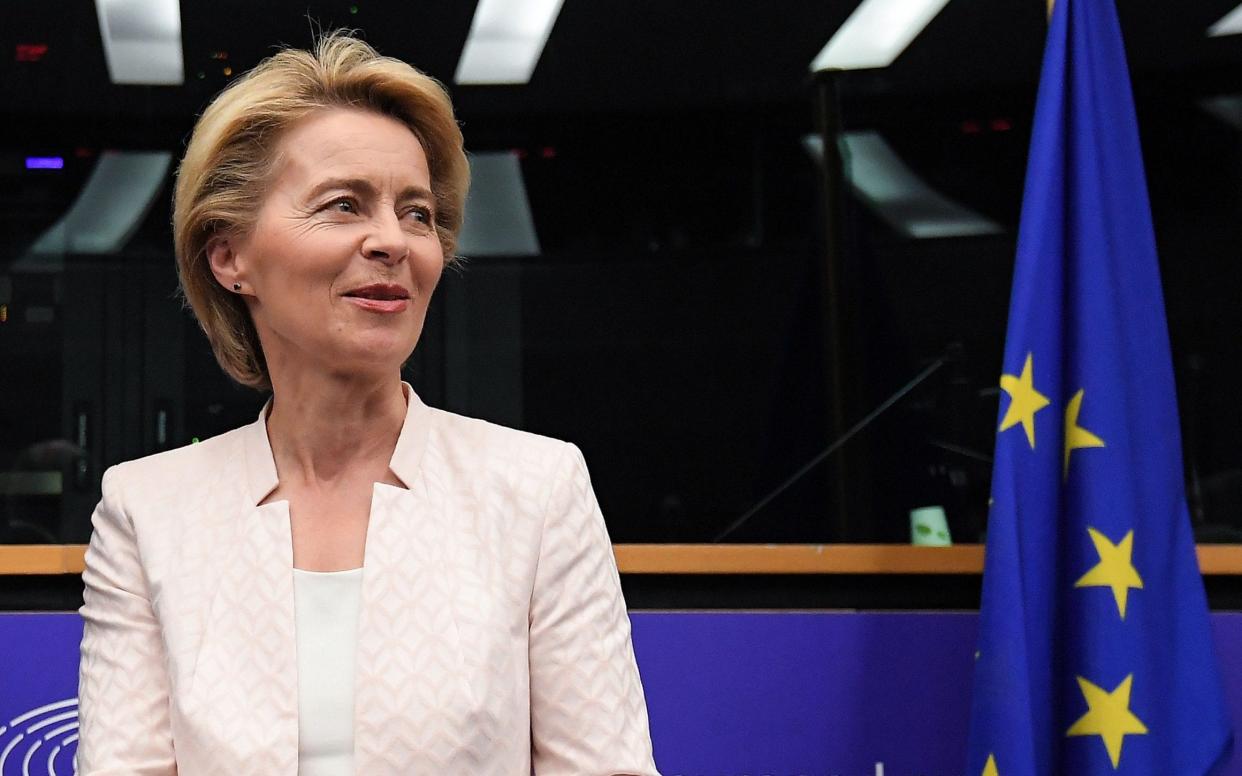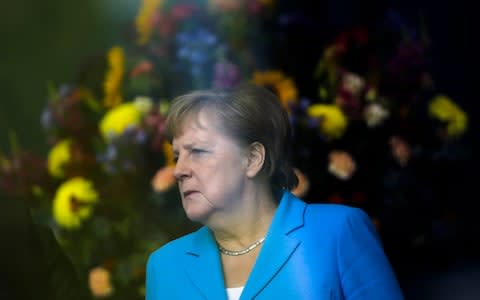Merkel faces fury at home over choice of von der Leyen for European Commission chief

Angela Merkel faced a wave of fury at home on Wednesday over the nomination of Ursula von der Leyen as the new head of the European Commission that threatened to split her government and cast doubt on her future as chancellor.
Her main coalition partners, the Social Democrats (SPD), vowed to oppose Mrs von der Leyen’s candidacy, claiming it it “made a mockery of any attempt to democratise the European Union”.
Sigmar Gabriel, a former SPD leader, described the nomination as “an unprecedented act of political trickery” and called for his party to pull out of her government in protest -- a move which would deprive Mrs Merkel of a majority and could force new elections.
Annegret Kramp-Karrenbauer, the leader of Mrs Merkel’s Christian Democrat party (CDU) hit back, accusing the SPD of “putting party interests above the interests of Europe and Germany”.
“It’s a unique situation when Germany can’t get behind a German candidate,” said Markus Söder, the leader of Mrs Merkel’s Bavarian sister party.

The nomination of Mrs von der Leyen as the first German head of the Commission might seem like a victory for Germany, but it is a deeply controversial choice in her own country.
The SPD leadership is furious that Mrs Merkel has abandoned the principle that the Commission chief should be one of the lead candidates from the European elections.
And the nomination is seen as a reward for failure for Mrs von der Leyen after a chequered six years as German defence minister. Martin Schulz, another former SPD leader, described her as “the worst minister in Germany”.
One of Mrs Merkel’s closest confidants, Mrs von der Leyen’s tenure as defence minister saw funding shortages become so acute that troops were at one point forced to use broomsticks instead of guns on a Nato training exercise.
The German parliament’s own military watchdog warned last year that equipment shortages were so severe the country could not meet its Nato commitments.
Yet Mrs von der Leyen appeared to prioritise projects to provide soldiers with creches and flexible working hours over addressing the funding gap.

Her chances of securing the post as Commission chief received a boost in Strasbourg on Wednesday, when the European Parliament voted for Italian socialist David Sassoli, a former TV news journalist and an MEP since 2009, to become its president.
Mr Sassoli, 63, secured a majority of 23 in the second ballot. He was backed by a coalition of the centre-Right, centre-left and Emmanuel Macron’s liberals.
Their support suggested that EU leaders were correct in counting on MEPs to back the package of names put together after a marathon 27 hours of summit negotiations over three days.
There were fears MEPs would refuse to back Mrs von der Leyen’s nomination in fury after EU leaders ditched the system that tied the job of Commission chief to the results of the European elections,
But the election of Mr Sassoli suggests that there is a majority in the European Parliament for her candidacy.
That means that the presidencies of the European Commission, Council and Parliament will be split between the EU’s largest three political groups.
Mr Sassoli will serve five years but can expect a challenge after two and a half years.
The parliament is expected to vote on Mrs von der Leyen’s candidacy on or around July 15.

